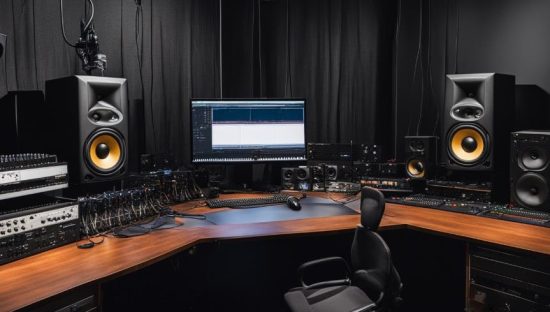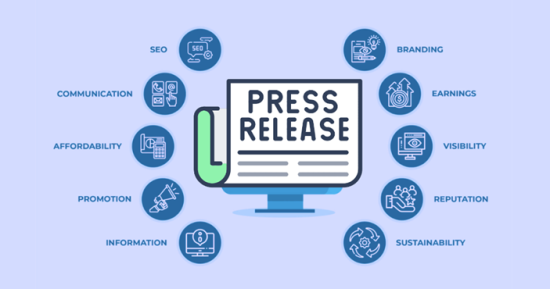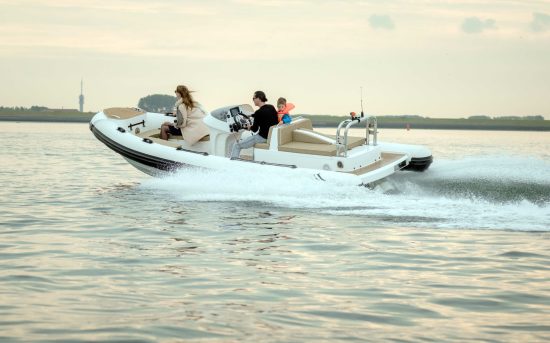
Dive into the world of podcasting without spending a dime! Discover how to start your own podcast for free, from concept to launch. This ultimate guide provides step-by-step instructions and practical tips, perfect for beginners or seasoned podcasters on a budget. Learn how to create quality content, find free hosting platforms, and promote your podcast without breaking the bank. Get ready to share your voice and stories with the world – no expensive equipment required!
How to Start a Podcast For Free
Promote your podcast effectively by creating standout artwork and a compelling description. Engage with your audience on social media, sharing content and collaborating with other podcasters. Decide between a grand opening or a soft launch, and explore budget-friendly marketing strategies like guest appearances and cross-promotion. With these steps, you can successfully launch and grow your podcast without spending a fortune.
Concept and Planning
Before you start your podcast, it’s essential to have a clear concept and plan in mind. Defining your podcast’s goals and audience, choosing a specific and engaging theme, and selecting a memorable name are crucial steps in the podcasting process.
Define your podcast’s goals and audience
When starting a podcast, it’s important to determine what you want to achieve and who your target audience is. Consider the purpose of your podcast. Are you aiming to entertain, educate, or inspire your listeners? Understanding your goals will help shape the content and tone of your podcast.
Additionally, identifying your target audience is crucial to create content that resonates with them. Consider demographics such as age, gender, interests, and preferences. Conducting market research or surveying potential listeners can provide valuable insights into their expectations and needs.
Choose a specific and engaging podcast theme
Selecting a captivating theme is key to attracting and retaining listeners. Your theme should be focused, unique, and align with your podcast’s goals and target audience. Think about your expertise, passions, and the topics that you have a genuine interest in exploring.
By narrowing down your podcast’s theme, you can establish yourself as an authority in that subject matter and attract a dedicated audience. Additionally, consider incorporating storytelling, interviews, or educational elements to make your podcast more engaging and dynamic.
Select a memorable podcast name
The podcast name is the first point of contact between your show and potential listeners. It should be catchy, memorable, and reflect the essence of your podcast. Brainstorm ideas that align with your chosen theme, and consider using keywords that resonate with your target audience.
When naming your podcast, ensure that it is unique and easily searchable. Avoid generic names that blend in with other shows in the same genre. A memorable and distinctive podcast name can help you stand out and attract more listeners.
Production
In this section, we’ll focus on the production aspect of your podcast. Producing a high-quality podcast involves careful planning and consideration. Here are some key factors to consider during the production process.

Decide on your podcast format and episode length
Choosing the right format and episode length is crucial for capturing and retaining your audience’s attention. The podcast format determines the overall structure and style of your show. It can be conversational, interview-based, storytelling, or a combination of different formats. Consider your target audience and the content you’ll be discussing when deciding on the format.
The episode length is another important factor to consider. The ideal length depends on your audience preferences and the nature of your content. Some podcasts thrive with shorter, bite-sized episodes, while others require longer episodes to delve deep into complex topics. Find a balance that keeps your listeners engaged and leaves them wanting more.
Plan your episode content and publishing schedule
Effective content planning is essential for creating captivating episodes. Start by outlining each episode’s main topics or themes, and consider how they align with your podcast’s overall goals and audience interests. Research and gather relevant information and prepare any guest interviews or segments in advance.
Once you have your content prepared, it’s important to establish a publishing schedule. Consistency is key when it comes to podcasting, so determine how often you’ll release new episodes. It could be weekly, bi-weekly, or monthly, depending on your capacity and audience expectations. Stick to your schedule to maintain your listeners’ interest and trust.
Equipment and Software
When it comes to starting a podcast, you don’t need to break the bank on fancy equipment. With the right podcasting equipment, podcasting software, and a little creativity, you can achieve professional-quality audio without spending a fortune. In this section, we’ll guide you through the essential elements you’ll need to set up your recording studio.
Microphone
A high-quality microphone is the cornerstone of a successful podcast. It captures your voice clearly and ensures your listeners have an enjoyable audio experience. There are various options available for every budget. When choosing a microphone, look for a microphone that suits your podcasting style and recording environment. Popular choices among podcasters include the Audio-Technica ATR2100x-USB and the Blue Yeti. These microphones offer excellent sound quality and versatility.
Studio
Your podcasting studio doesn’t have to be a professional recording booth. You can transform any quiet space into a suitable recording environment. Find a room with minimal background noise and consider using blankets or foam panels to dampen echo. Positioning your microphone correctly and investing in a microphone stand or boom arm can also improve the sound quality of your recordings.
Software

Choosing the right software is crucial for recording and editing your podcast episodes. There are many podcasting software options available, both free and paid, depending on your needs and preferences. For beginners, Audacity is a popular free choice that offers a range of features for recording and editing audio. If you’re looking for more advanced capabilities, consider software like Adobe Audition or GarageBand. These programs offer professional-level editing tools and effects to enhance your recordings.
Now that you have an understanding of the essential equipment and software required, you’re one step closer to creating your own podcast.
Hosting and Distribution
- Podcast hosting platforms store your audio files and generate an RSS feed for distribution.
- Choose a platform that offers reliable hosting and distribution to major directories.
- Anchor is a top choice for free hosting with easy uploading, editing, and distribution.
- Anchor offers unlimited storage and bandwidth, plus monetization options and analytics. We can aslo find podcast in music apps like Spotify.
- Podbean is another popular option, providing reliable hosting, a customizable website, and monetization features.
- Consider ease of use, storage limits, monetization, analytics, and distribution when choosing a platform.
Promotion and Engagement
Once you have created and launched your podcast, it’s time to promote it and engage with your audience. By implementing effective promotion strategies, you can increase your podcast’s visibility and attract more listeners. Additionally, engaging with your audience helps foster a sense of community and keeps them coming back for more.
Create eye-catching podcast artwork
One of the key elements of podcast promotion is eye-catching artwork. Your podcast artwork serves as the visual representation of your brand and can greatly influence whether potential listeners choose to click and listen. Make sure to create artwork that accurately reflects the content of your podcast and grabs the attention of your target audience.
Write an engaging podcast description
Your podcast description plays a crucial role in enticing potential listeners to tune in. Craft a captivating and concise description that highlights the unique selling points of your podcast. Incorporate relevant keywords to improve discoverability and make it easy for listeners to understand what your podcast is all about.
Promote your podcast on social media and collaborate with others
Social media platforms provide a powerful avenue for promoting your podcast. Utilize platforms like YouTube, Facebook, Instagram, Twitter, and LinkedIn to share episodes, engage with your audience, and attract new listeners. Additionally, consider collaborating with other podcasters in your niche. By joining forces, you can cross-promote each other’s podcasts and tap into each other’s audiences for mutual benefit.

Launch and Growth Strategies
Once your podcast is ready, it’s time to launch and start growing your listener base. In this section, we’ll guide you through the process of launching your podcast with a grand or soft opening, using effective marketing tips to attract new listeners, and utilizing free resources to enhance the success of your podcast.
Launch your podcast with a grand or soft opening
When it comes to launching your podcast, you have two main options: a grand opening or a soft opening. A grand opening is characterized by a big, impactful launch with a lot of promotion and fanfare. This type of launch can generate excitement and buzz around your podcast. On the other hand, a soft opening is a more low-key launch, where you release your podcast episodes without much fanfare and gradually build your audience over time.
Whichever option you choose, it’s important to have a solid plan in place. Start by identifying your target audience and determining the best platforms to promote your podcast. Develop a launch strategy that includes engaging social media posts, collaborations with other podcasters or influencers in your niche, and utilizing email newsletters or other marketing channels to reach your target audience.
Use marketing tips to grow your listener base
Marketing plays a crucial role in growing your podcast’s listener base. Here are some effective marketing tips to help you attract new listeners:
- Create compelling and engaging podcast artwork that catches the attention of potential listeners.
- Write an enticing podcast description that clearly communicates what your podcast is about and why people should tune in.
- Promote your podcast on social media platforms where your target audience is most active. Engage with your followers and encourage them to share your podcast with their networks.
- Collaborate with other podcasters or influencers in your niche. This can help you tap into their audience and gain exposure to a wider group of potential listeners.
- Utilize search engine optimization (SEO) techniques to optimize your podcast website and improve its visibility in search engine results.
Utilize free resources to enhance your podcast’s success
There is a wealth of free resources available that can help enhance the success of your podcast.
Here are some valuable resources to consider:
- Podcast hosting platforms: Choose a free podcast hosting platform that provides reliable hosting services and makes it easy to distribute your episodes to various podcast directories.
- Podcast editing software: Use free editing software like Audacity or GarageBand to edit your podcast episodes and create professional-quality audio.
- Online communities and forums: Join online communities and forums for podcasters to connect with like-minded individuals, share tips and advice, and learn from experienced podcasters.
- Podcast directories: Submit your podcast to popular podcast directories like Apple Podcasts, Spotify, and Google Podcasts to increase its discoverability and reach a wider audience.
- Analytics tools: Take advantage of free podcast analytics tools to track the performance of your episodes, identify trends, and gain insights into your audience.
By leveraging these free resources, you can optimize your podcast’s reach, quality, and success without breaking the bank.
Best Podcast Hosting Sites Available in the US
If you’re looking to start a podcast, one of the most important decisions you’ll need to make is choosing the right hosting platform. A podcast hosting site serves as the home for your audio files and helps distribute your episodes to various podcast directories. In this section, we’ll review some of the best podcast hosting sites available in the US, so you can make an informed decision for your podcast.
One popular option is Anchor, a free podcast hosting platform that provides everything you need to record, edit, and distribute your podcast. With its user-friendly interface, Anchor makes it easy to publish your episodes to major podcast directories such as Apple Podcasts, Spotify, and Google Podcasts. Plus, they offer monetization options that allow you to earn money from your podcast.
Another top contender is Buzzsprout, known for its simplicity and comprehensive podcast analytics. Buzzsprout offers a user-friendly interface and advanced features such as automatic episode optimization and embeddable podcast players. Their pricing plans are competitive, making it suitable for both beginners and experienced podcasters.
If you’re looking for a hosting platform that offers extensive customization options, consider Libsyn. Libsyn offers flexible pricing plans and allows you to create a fully customizable podcast website. They also provide detailed analytics to help you track your podcast’s performance and reach.
FAQs on Starting Podcast
Do I need any experience to start a podcast?
No, you don’t need any prior experience to start a podcast. Our guide will walk you through the entire process, even if you have no previous podcasting experience.
Can I start a podcast with no money?
Yes, you can start a podcast without spending any money. Our guide will show you how to navigate the podcasting world on a budget and provide free resources for hosting, promotion, and equipment.
How much does it cost to start a podcast?
The cost of starting a podcast can vary depending on factors such as equipment, hosting, and promotion. However, by following our guide, you can start a podcast for free or at a minimal cost.








